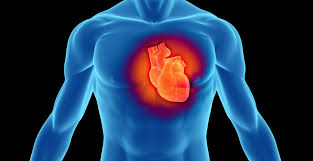 Current statistics from the U.S. Center for Disease Control (CDC) indicate that the average male lives 5 less years than their female counterparts, on average. A major contributor to this shorter lifespan is heart disease – the #1 health concern for men.
Current statistics from the U.S. Center for Disease Control (CDC) indicate that the average male lives 5 less years than their female counterparts, on average. A major contributor to this shorter lifespan is heart disease – the #1 health concern for men.
Men’s health is a top concern for US Family Health Plan – a TRICARE Prime Health Program. US Family Health Plan is designed to serve our nation’s military retirees, as well as the families of deployed active duty service members. A large number of our members are male, and fall into the age group where heart disease happens to be most prevalent.
This June, as our country celebrates Men’s Health Month, we want to shed more light on what men and their loved ones need to know about heart disease. How to check for it, how to prevent it, how to manage it and how to live longer. Many US Family Health Plan members have valiantly served our country, have been great family men as well, but still have a habit of putting their own well-being on the back burner. Today are putting your health on the front burner by helping you understand the ins and outs of heart disease for men.
The Facts
The first astounding fact about men and heart disease, is that more than more than 20% of all men have not seen a health professional in over a year. Since in many cases, heart disease is preventable and treatable, keeping up with your annual check-ups and exams plays an important role in reducing heart disease, especially among men.
of all men have not seen a health professional in over a year. Since in many cases, heart disease is preventable and treatable, keeping up with your annual check-ups and exams plays an important role in reducing heart disease, especially among men.
A bad heart kills more men each year than all types of cancer combined. Each year, over 325,000 men die from heart disease, making it the leading cause of death for them, according to the CDC. In fact, nearly 1 out of every 4 male deaths can be attributed to the heart. Despite these grim statistics, the good news is that heart disease can be avoided in many cases.
What Raises Your Risk of Heart Disease?
Like with other leading causes of death, cigarettes play an important role in setting the stage for heart problems. Between the ages of 30 and 50, smoking actually doubles the risk of a heart attack. High blood pressure, poor cholesterol, excess body weight, and too little exercise are other major risk factors for heart disease. The ability to keep stress levels in check is also an important factor.
 Symptoms to Watch For
Symptoms to Watch For
Some heart attacks might strike silently, meaning they don’t come with the crushing chest pain you might associate with a heart attack. Instead, you might feel mild chest pain, nausea, vomiting, unexplained fatigue, heartburn, shortness of breath, or discomfort in the neck or jaw. If you notice any of these symptoms, you should contact your physician immediately. These can be early warning signs, which, if caught in time, can help you avoid a full blown heart attack.
Preventative Steps that Make a Difference
- Always pay attention to what your body is telling you. Men tend to ignore “little” aches and pains and therefore easily miss important warning signals. Catching early symptoms is a key to prevention. You might be on the road to heart disease, even if you think you feel great.
- Maintain all of your regular medical check-ups. Importantly, make sure you always
 get a test called a lipid panel. Starting in the 20’s, every man should have his cholesterol levels regularly checked, including both his HDL and LDL measures, as well as his triglycerides. These scores can tell your doctor how you can lower your heart disease risks.
get a test called a lipid panel. Starting in the 20’s, every man should have his cholesterol levels regularly checked, including both his HDL and LDL measures, as well as his triglycerides. These scores can tell your doctor how you can lower your heart disease risks. - Monitor your diet. Think Mediterranean diet. Avoid too much sugar, fat, and salt. Embrace fruits, vegetables, olive oil, and nuts into your daily diet.
- Exercise regularly, and aim to get at least 30 minutes of exercise 5 days a week. But avoid over-doing it as well, especially as we grow older.

